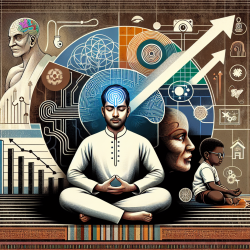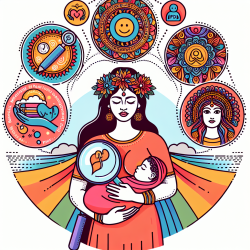Understanding Meditation-Related Challenges: A Pathway to Enhanced Therapeutic Practices
In the realm of meditation, challenges often arise that can be mistaken for psychopathological experiences. However, a recent study titled "Progress or Pathology? Differential Diagnosis and Intervention Criteria for Meditation-Related Challenges: Perspectives From Buddhist Meditation Teachers and Practitioners" sheds light on how these experiences can be differentiated and understood within their unique contexts.
The Importance of Contextual Understanding
The study emphasizes the significance of expanding the framework for assessing meditation-related challenges. It suggests that understanding these experiences requires a person-centered approach that considers the interpersonal and cultural dynamics surrounding them. This approach aligns with current trends in mental health care, where context is crucial in evaluating experiences and determining the need for intervention.
Criteria for Differentiating Experiences
According to the study, several criteria can help differentiate between religious experiences and psychopathology:
- Phenomenological Qualities: The specific characteristics of an experience can indicate whether it is a normative part of meditation or a potential concern.
- Distress and Control: The level of distress and the ability to control the experience are key indicators of whether intervention is needed.
- Duration and Impact: The length and impact of the experience on the individual's life can help determine its nature.
Implications for Therapeutic Practices
For practitioners, especially those working with children, understanding these criteria can enhance therapeutic outcomes. By recognizing the broader range of experiences that may warrant intervention, practitioners can tailor their approaches to better meet the needs of their clients. This understanding is particularly beneficial in online therapy settings, such as those provided by TinyEYE, where therapists may encounter diverse cultural and personal backgrounds.
Encouraging Further Research
The study encourages further exploration into the differential diagnosis of meditation-related challenges. By expanding our understanding of these experiences, we can develop more effective interventions and support systems for individuals experiencing them. Practitioners are urged to engage with this research to enhance their skills and contribute to the growing body of knowledge in this field.
To read the original research paper, please follow this link: Progress or Pathology? Differential Diagnosis and Intervention Criteria for Meditation-Related Challenges: Perspectives From Buddhist Meditation Teachers and Practitioners.










